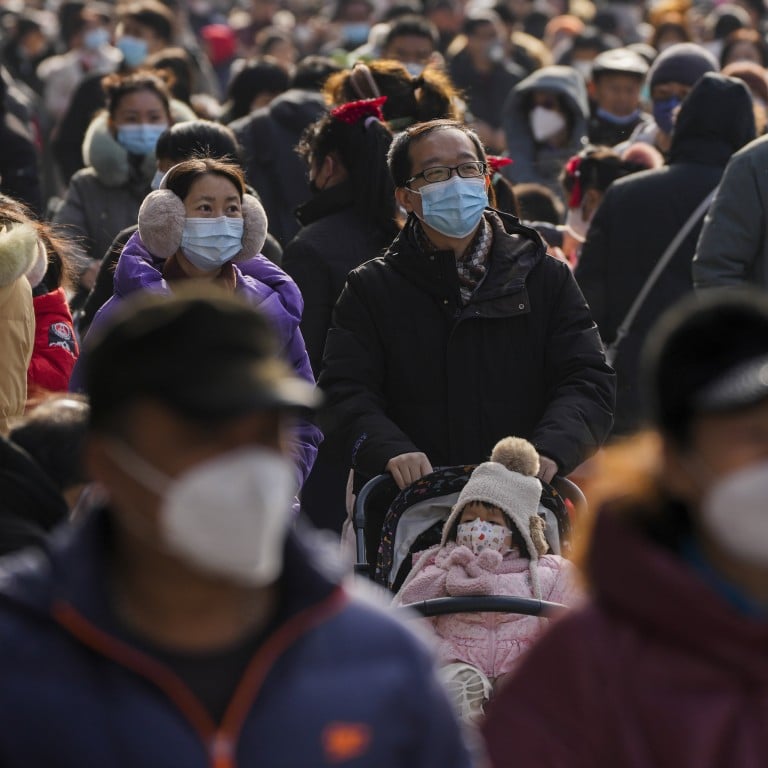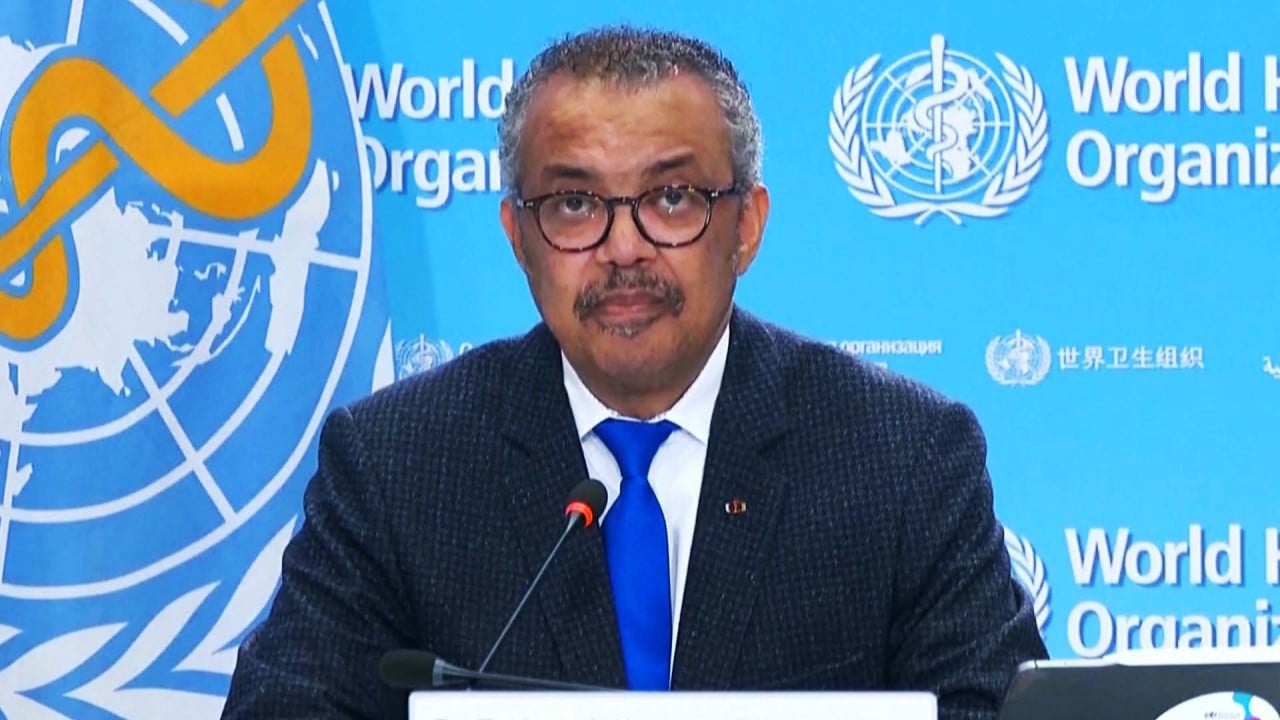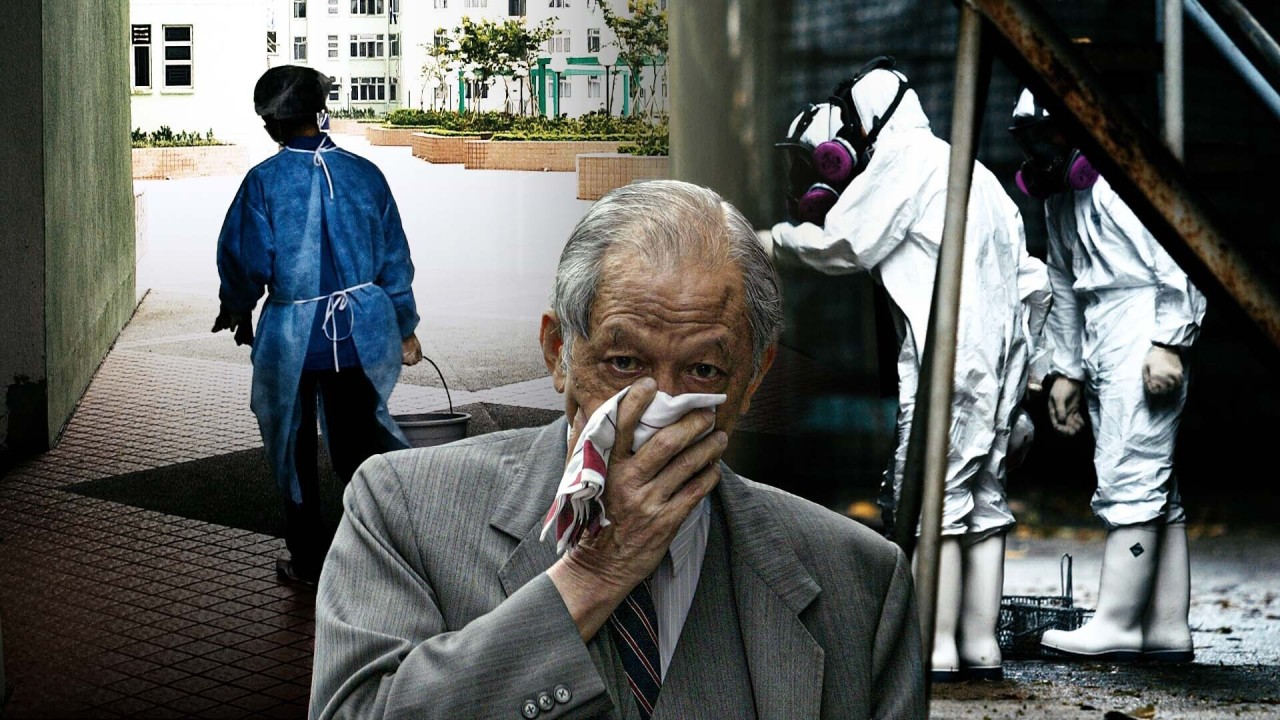
China braces for Covid surge as JN.1 variant spreads around the world
- JN.1 likely to become the prevailing strain throughout the country, in part driven by Lunar New Year travel
- Cases expected to put pressure on struggling health services in rural areas
The US Centres for Disease Control and Prevention said earlier this month that JN.1 was first detected in the US in September and although it was likely to be more transmissible than other variants, it did not appear to cause more severe illnesses.
In China, the most prevalent variant is EG.5 but health authorities are expecting a rise in JN.1 because of an increase in imported cases, as well as mass travel over the Lunar New Year holidays in early February.
Li added that China was bracing for an uptick in multiple respiratory diseases during the winter.
“[The rise in JN.1 cases] will increase the risks of severe cases and deaths among elderly and vulnerable people with underlying diseases. It will also create pressure on the health system in rural areas as they are less able to treat the infected,” he added.
Li said the bureau would closely monitor the spread of the variant, and step up vaccination of at-risk groups with shots developed from the XBB strain.
According to the World Health Organization and scientific studies by the medical community, vaccines developed to counter the XBB variant in the Omicron family are still effective against JN.1.
Li said China would also pay special attention to weak links in the rural health system and allocate more resources to enable effective diagnosis to ensure hospitals were not inundated with less severe cases.
China’s health system was strained earlier this year with a spike in hospitalisations for various respiratory diseases, especially among children.
Health authorities and scientists said the spike was caused by a lack of immunity against other common respiratory diseases following three years of mask requirements. Many other countries also saw an increase in respiratory diseases after Covid-19 restrictions were lifted.
Respiratory diseases often increase in winter as most people stay indoors. In China, that trend is exacerbated by mass travel around the Lunar New Year – as was the case with the rapid spread of sudden acute respiratory syndrome in 2003 and the Omicron variant in 2022.
JN.1 evolved from the BA2.86 Omicron subvariant and by mid-December was responsible for about 44 per cent of Covid cases in the United States, according to the US CDC.
The WHO identified it as JN.1 as a variant of interest on December 19, saying it was on the rise in various countries, but the threat of an additional global public health risk was low.
The number of new cases of Covid-19 rose by more than half in the 28-day period to 17 December 2023, with more than 850,000 new cases reported, the WHO said.
But the number of new deaths fell by 8 per cent as compared to the previous 28-day period, with more than 3,000 new fatalities reported.



